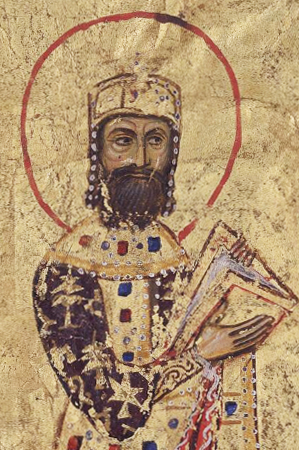Year 1081: A Year of Change and Conflict
The year 1081 was a significant period in history, marked by a series of transformative events across various regions.
Byzantine Empire
On April 1, Emperor Nikephoros III was forced to abdicate the throne, retiring to the Peribleptos monastery. He was succeeded by Alexios I Komnenos, who was crowned on April 5. In exchange for support, Nikephoros Melissenos was appointed as co-emperor and commander of the Byzantine armies in the West.
In May, a formidable Norman fleet of 150 ships, led by Duke Robert Guiscard, set sail toward the Dalmatian coast, aiming to capture the city of Avalona (modern-day Albania). The fleet included about 15,000 men and was supported by ships from Ragusa, a city-state opposed to Byzantine rule.
On October 18, the Battle of Dyrrhachium took place. After seizing the island of Corfu, Guiscard laid siege to Dyrrhachium. Despite Alexios I Komnenos’s efforts to defend Illyria, he faced defeat at the hands of Guiscard outside the city, marking a pivotal moment in the early history of Albania.
Europe
In Castile, King Alfonso VI, known as “the Brave,” exiled his prominent commander El Cid. Finding no support from Counts Ramon Berenguer II and Berenguer Ramon II of Barcelona, El Cid ultimately offered his services to Emir Yusuf al-Mu’taman ibn Hud of Zaragoza.
The ruler of Duklja, King Mihailo (referred to as “King of the Slavs”), passed away after a reign of 30 years, succeeded by his son Constantine Bodin.
Britain
The Battle of Mynydd Carn unfolded near St Davids in Wales, where Gruffudd ap Cynan allied with Rhys ap Tewdwr, defeating the forces of Trahaearn ap Caradog and others, enabling Gruffudd to claim the Kingdom of Gwynedd.
During this time, King William the Conqueror ordered the construction of a castle at Cardiff, utilizing existing Roman fortifications for what would become a motte and bailey castle.
Seljuk Empire
Tzachas, a Seljuk emir, conquered Smyrna (modern İzmir), establishing a short-lived independent state that became the first naval power in Turkish history.
Religious Developments
In religious news, Pope Gregory VII addressed Bishop Hermann of Metz regarding the actions of Henry IV, Holy Roman Emperor. Also, the construction of St. Canute’s Cathedral in Odense (modern Denmark) commenced.
Notable Births and Deaths
Births
- Louis VI (“the Fat”), King of France
- Gruffydd ap Rhys, Welsh King of Deheubarth
- Rudolf I, Count of Bregenz and Chur
- Suger, French abbot and historian
- Zhang Bangchang, Chinese Prime Minister
Deaths
- Ibn Hayyus, Syrian poet
- Nikephoros III, Byzantine Emperor
- Mihailo, King of Duklja
- Trahaearn ap Caradog, Welsh king
The year 1081 stands as a pivotal chapter in European history, with shifts in power, territorial battles, and significant cultural developments that would shape future generations.

